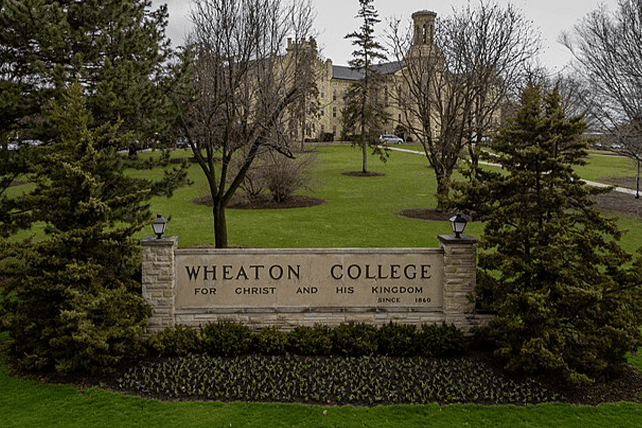I set foot on Wheaton College’s campus for the first time in 1984. It was a “Connection” weekend during which high schoolers can experience what it’s like to be a Wheaton student.
I was housed in Traber dorm. The students acting as my hosts had a picture of Ronald Reagan on their wall. I found this very reassuring. “I will do well here,” I thought.
I wanted to be a history major and therefore in my first semester at Wheaton I took the introductory world civilization course. The assigned readings included “The Communist Manifesto.” My conservative professor was in no way trying to turn students into Marxists. He was trying to educate them, and he did this on the theory that you have to actually read the sources.
I was exhilarated by the thought that we could read Marx, rather than merely denounce him. Reading “The Communist Manifesto” confirmed me in my lifelong opposition to Marxism. I remember being thoroughly repulsed by a detail I have never seen mentioned in any summary of the book: Marx’s hint that communism might include communal wives.
One of the professors in the history department was Thomas Kay. Interpersonally, he came across as temperamentally anxious. I made a comment about him to another professor who explained to me that Kay had never been quite the same since he had been denounced as being soft on communism in a book, “Steps Towards Apostasy at Wheaton College” (1966). That book had been self-published by Wilhelm E. Schmitt, a Wheaton alum.
Schmitt’s main piece of evidence that Wheaton was compromised by communism was that the college had allowed an Eastern European orchestra to perform on campus. Nevertheless, numerous people were willing to assume that he had provided “proof” that something was not quite right at Wheaton.
In January 1985, Schmitt was found guilty in a court of law of having organized a violent, anti-Semitic cell with which to fight a domestic “war.” He went to prison. I suspect he was mentally ill. As to Kay, one can judge how seriously to take the attack on him by observing that he was the chairman of the local branch of the Republican Party.
People whispered that Wheaton was drifting away from the faith, but countervailing evidence soon arrived with the remarkable revival of 1995. So when did Wheaton veer off course? Some say it was during the presidency of A. Duane Liftin, a Dallas Theological Seminary graduate and a pastor from Tennessee.
After all, Litfin presided over the changing of the name of Wheaton’s sports teams from Crusaders to Thunder. One advantage, however, of the new name is that it reminds us of Bible passages. For me, it makes me think of when a voice from heaven confirmed that Jesus was truly glorifying the Father: “The people therefore, that stood by and heard it, said that it thundered” (John 12:29).
Wheaton must ever be vigilant. A day could come when the courage of Wheaton fails, when we forsake our friends and break all bonds of Christian fellowship, but it is not this day. Wheaton is still unabashedly standing for Christ and his kingdom. Those words are defiantly on our letterhead and business cards and promotional literature for all to read—not even in Greek or Latin, but in plain English.
And they do not belie the reality on the ground. A prominent evangelical leader recently said publicly that you should not send your children to Wheaton, but to a truly Christian school such as Hillsdale. Hillsdale has many strengths, but being a thoroughly Christian college is not one of them. Hillsdale professors are not even required to be Christians, let alone adhere to a detailed statement of faith and community covenant as Wheaton faculty members joyfully do.
Of course, there will always be things that happen at Wheaton that you would wish were not so. People will always be able to point and exclaim in outrage, “They assign ‘The Communist Manifesto!'” or “Litfin gave in to political correctness and got rid of the Crusaders,” or the like.

